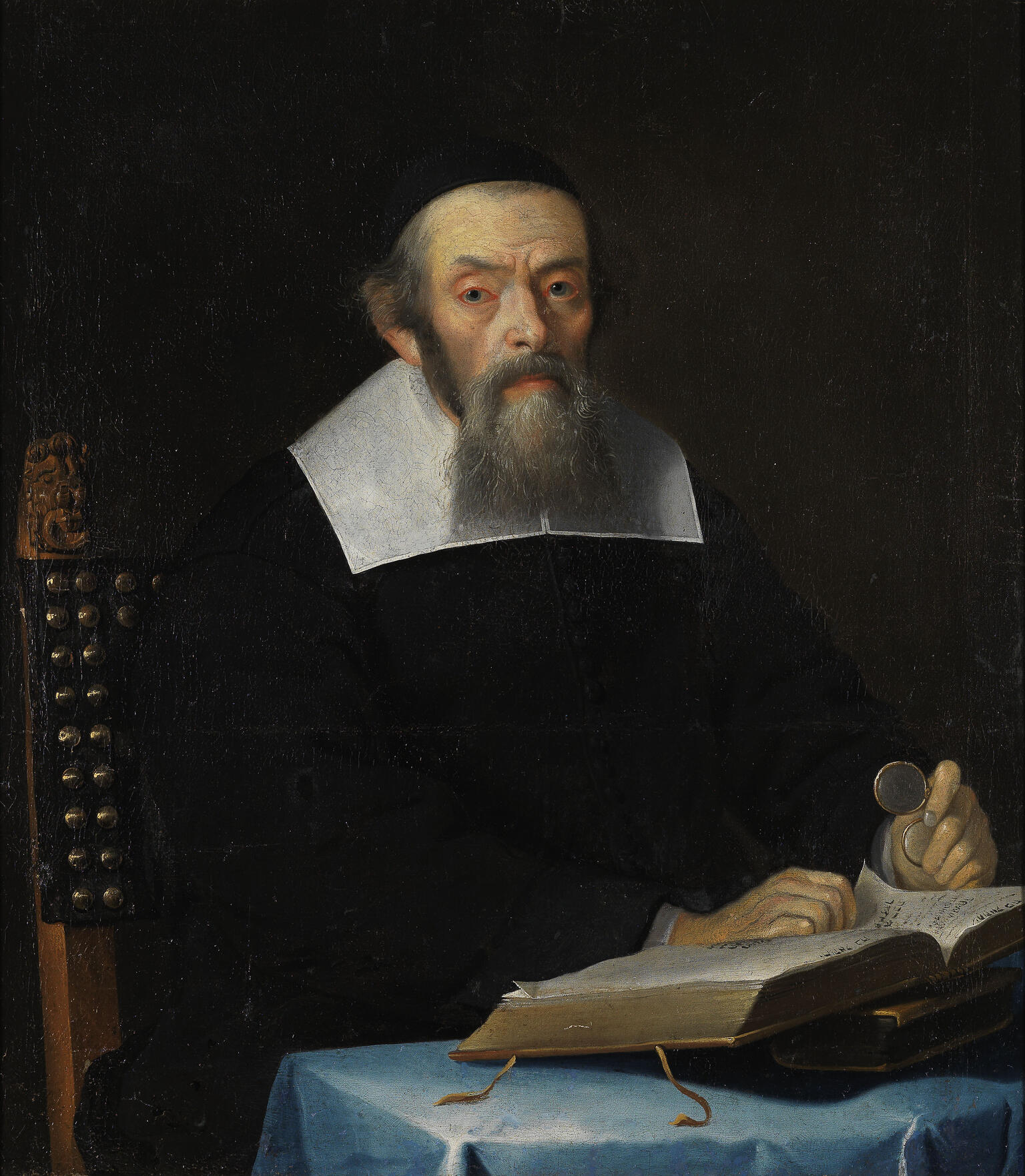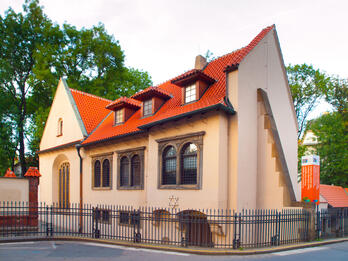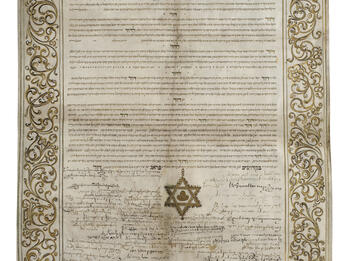Ohale Ya‘akov (The Tents of Jacob): On Prayer Customs
To the city of London, to the complete sage R. Solomon Ayalon, in the year 1697.
Question 64
First, let me offer my warmest greetings. Now, I wish to convey my heartfelt sorrow as I see that the days have arrived in which the Torah is diminished, and that those who study it for its own sake are collapsing. Meanwhile, those who wear rabbinical robes while believing otherwise in their hearts have opened their mouths and lengthened their furrows (Psalms 129:3) against heaven. Their tongues go forth with the poison of snakes against your disciples, who are like angels of God that have only one heart directed toward their Father in heaven. They brazenly turn their faces to their rabbis, as they are the ones who are rebelling against the light of the Torah, and accordingly they are worthy of punishment and should be sentenced for their deeds. For indeed they brag, saying “Who is a teacher like us?” [see Job 36:22] and they call evil good, and good evil (Isaiah 5:20). This is the approach of deceivers, and the road paved by belligerent men and bandits. It is not surprising that they do not admit to the truth, as they do not have a knowing heart, with which they can comprehend and differentiate between truth and falsehood, and therefore they call evil good, etc. The only other possibility is that they recognize God’s authority and yet intentionally rebel against His Torah, as you said, and they are shameless with their bronze foreheads (Isaiah 48:4). How, then, can your honor permit them to enter the realm of those who maintain the Torah—God forbid. Rather, they should be categorized as heretics and those who mock the angels of God (2 Chronicles 36:16). We must say that these rabbis have lost their portion in the land of the living and they have been completely driven out.
Accordingly, my heart is faint within me (Jeremiah 8:18) upon discovering those who wear rabbinic vestments and robes and yet act in this manner, as they cause people to mock those who do fear God and they thereby diminish the honor of Torah scholars. One who has reached this state will not accept reproof, for he will certainly think that he is in a position to criticize those who do not agree with him, as such people consider themselves so wise that they can judge their judges [see b. Bava Batra 15b]. However, in truth they are like the impudent ones who herald the arrival of the Messiah [see m. Sotah 9:15], for even those students who were raised on the knees of the sages [see Genesis 50:23] and suckled from the teats of their wisdom have turned their backs to them and will not face them. They revolt against their rabbis and make them sit on the ground, while they remove the pillows and cushions from beneath them [see b. Bava Kamma 117a], and even their seat of honor as well. Yet despite all this, their rabbis have not rejected them with both hands, and have not pushed them forcefully away; rather, with the left hand they drive them away and with the right hand they draw them near [b. Sanhedrin 107b]. This is the proper method, in the right time and place, when the masses are watching. They should be drawn near in a friendly manner before the leprous plague spreads outward, so that they are closed off and quarantined. It is the correct approach in a situation where none have an advantage over another, unless the other realizes of his own accord that his colleague holds the upper hand, both in terms of Torah knowledge and status, in which case the latter will not have to force him to comply, through lashes and whips.
Your honor, you should not be so exacting, as befitting your wisdom and importance, but you should overlook transgressions against yourself and spare the lashes, unless they are profaning the name of God and the Torah. Even in such a case, when you do what is required of you and instruct those who can carry out your directives, or you decide to object to such practices, or repudiate their opinions, you have already fulfilled your obligation to admonish those violent individuals who wield bucklers and shields. All the more so, when those who scrutinize you are the people who defy the sages, and a child could write their words down. With your gentle tongue you will sweeten the bitter words of their mouths and improve their taste: you shall decree a matter, and it will be established for you (Job 22:28), and people will follow you.
This is my advice, in my fondness for your honor. I follow this practice myself, as we are all equally good in this respect, and a hint is enough for the wise. Now I will briefly address the matter at hand and the question itself: what did they rely on when they decided not to read the passage of “Seek [the Lord,” Isaiah 55:6–56:8] for the Haftarah of the Fast of Gedaliah, in fulfillment of the mnemonic of the Pesikta [de-Rav Kahana] which refers to two haftarot of repentance.1 I fail to grasp the need for this question. After all, your honor must know that they have sources that support their position, as your honor himself saw in Tikun Yisakhar.2 The question arises only for those who accept the custom of our teacher, R. [Joseph] Karo and his colleagues, who follow the mnemonic of the Pesikta. In order to fulfill its requirement of two haftarot of repentance, they will always—whether Rosh Hashanah falls on a Monday and Tuesday or on a Thursday and Friday—read the Haftarah of “Seek” on the Fast of Gedaliah, and on the Sabbath between Rosh Hashanah and Yom Kippur they will read the Haftarah of “Return” [Hosea 14:2–9]. Now, even if Rosh Hashanah falls on a Monday and Tuesday there are in fact two Sabbaths available: the Sabbath between Rosh Hashanah and Yom Kippur, and the [following] Sabbath between Yom Kippur and Sukkot. Thus, they can fulfill the requirement of two haftarot of repentance, as on the Sabbath between Rosh Hashanah and Yom Kippur they can read the Haftarah of “Seek,” while on the Sabbath between Yom Kippur and Sukkot they can read the Haftarah of “Return.” For it is fitting to cry out to God in repentance both before and after one’s sentence [on Yom Kippur; see b. Rosh Hashanah 16a]. However, when Rosh Hashanah falls on a Thursday and Friday there is no room for both of them.3 Nevertheless, if the Haftarah is read on the Fast of Gedaliah, all will fulfill the requirement of the Pesikta, and it is here that your honor’s question is applicable: on what basis did they not read the Haftarah of “Seek” on the Fast of Gedaliah?
Notwithstanding the above, there are authorities who do not rule in accordance with the Pesikta in this regard, such as the Rambam [Moses Maimonides (1138–1204)] and those who follow him. [ . . . ] Accordingly, those who always read the Haftarah of “Return” on the Sabbath between Rosh Hashanah and Yom Kippur, and are not particular about the mnemonic of the Pesikta, are acting in accordance with the opinion of the Rambam, the Talmud, and the other ruling authorities.
The custom is to not to read a Haftarah on any of the four public fasts, with the exception of Tisha be-Av. Here they follow the ruling of the Ravad [Abraham ben David (ca. 1125–1198)], which is to read the Haftarah of “Return” on Tisha be-Av, in order that we should repent of those sins of ours which lead to the destruction of the Temple. This has therefore become the practice in these places, as well as certain Sephardic congregations such as the Hamburg community, and likewise many of the African Sephardic communities, that the Haftarah of “Return” is always read on the Sabbath between Rosh Hashanah and Yom Kippur, and after Yom Kippur they resume the regular order of the haftaroth and read “And David spoke.” Meanwhile, they do not read a Haftarah on any fast at all, including the Fast of Gedaliah, apart from Tisha be-Av as per the ruling of the Ravad.
Now this custom, in these places and in others that follow them, was established in ancient times. For when the three communities that used to be here were combined into a single community, they chose for themselves to rely on the custom that they thought was best, and that general custom included this practice, which they have observed from back then until this day. It was established by the ancient scholars and was even inscribed in the book for prayer leaders. The book of every prayer leader was copied from this source text, and other books are also based on it. No custom is more firmly grounded in the decision of the ancient ones.
Now, since London always follows the customs of Amsterdam, and there is a basis for this custom, why should we innovate a new practice and break from the established custom of our predecessors? They did not consider the opinion of R. Karo regarding the mnemonic of the Pesikta; indeed, with regard to many matters—even some that have legal ramifications—we do not follow our teacher, R. Joseph Karo, but rather we act in accordance with the opinion of the Rambam and other authorities.
Notwithstanding all of the above, if your honor feels that it is appropriate to institute a new custom, that the Haftarah of “Seek” should be read on the Fast of Gedaliah, you have the right to do so. However, I do not feel that it is correct to innovate regarding a matter that was already established in accordance with the law and as a fixed custom.
For example, according to R. Joseph Karo, on the four public fasts every individual recites the Aneinu passage in each of the four prayers of the day. Following his opinion, it was the custom to announce “Aneinu!” before the Evening Prayer.4 The Tur [Bet Yosef, Karo’s commentary on Jacob ben Asher’s Arba‘ah turim] explicitly writes that this is the custom of the Sephardim, based on a statement in the Jerusalem Talmud, whereas the Ashkenazim do not follow this practice. Even so, here in Amsterdam it is the custom to act in accordance with the Ashkenazim. I voiced my objection but my efforts were unsuccessful, as they said that when the earlier sages found that this was the custom, they left it in its place in honor of the first sage, who was Ashkenazic, and since this practice has been established it should not be changed. Now this is not merely a matter of a custom, but an actual question of law, as ruled by R. Joseph Karo, and even so, it is not followed here; a fortiori regarding an issue that depends on a custom, such as the Haftarah of “Seek,” which is only based on the mnemonic of the Pesikta. [ . . . ]
It is your honor’s decision, not mine, and I will neither object nor stop you; all I wish to say is that this custom has already been established. [ . . . ]
(This is all I could find from this halakhic ruling; woe for that which we have lost etc.—from the copyist and editor, who performed his task faithfully.
The youngest of the group, who yearns for the Torah, David, son of my beloved father, our honorable teacher and rabbi, Rav Raphael Meldola, may he be blessed.)
Translated by
.
Notes
[The Pesikta has mnemonics for certain readings from Prophets on various Sabbaths of the year. Among others, it refers to “two of repentance.” This is problematic as there is usually only one Sabbath in the Ten Days of Repentance, i.e., the period spanning Rosh Hashanah and Yom Kippur.—Trans.]
[Issachar ben Mordechai Ibn Susan’s 1564 book on the calendar, including weekly Torah and Haftarah readings.—Trans.]
[I.e., for both haftarot of repentance on Sabbaths between Rosh Hashanah and Sukkot, as Yom Kippur itself falls on a Sabbath.—Trans.]
[To remind the congregation to recite this passage in their standing prayer.—Trans.]
Credits
Jacob Sasportas, Ohel Ya‛akov (The Tents of Jacob) (Amsterdam: Be-vet uvi-defus Hirts Levi Rofe, 1737), no. 64.
Published in: The Posen Library of Jewish Culture and Civilization, vol. 5.







